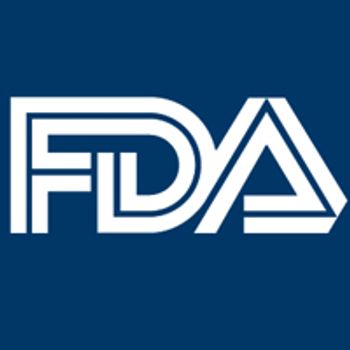
Barry Paul Sleckman, MD, PhD, has been named director of the O’Neal Comprehensive Cancer Center at the University of Alabama at Birmingham.

Your AI-Trained Oncology Knowledge Connection!


Barry Paul Sleckman, MD, PhD, has been named director of the O’Neal Comprehensive Cancer Center at the University of Alabama at Birmingham.

Neeraj Agarwal, MD, discusses the TITAN trial and the implications in prostate cancer treatment.

David H. Ilson, MD, PhD, discusses current treatment options for patients with gastric cancer, the challenges with the KEYNOTE-062 trial, and other immunotherapy agents coming down the pipeline.

Thomas Powles, MD, MBBS, MRCP, discusses the rationale for the BISCAY trial and what questions still need to be answered. 

Daniel J. George, MD, discusses staples of treatment in metastatic prostate cancer as well as novel therapies and emerging strategies in the field.

Antoinette Wozniak, MD, FACP, FASCO, discusses the promise of immunotherapy in lung cancer and shared ongoing research efforts further exploring this approach.

The FDA has expanded the approval of aprepitant (Cinvanti) injectable emulsion for intravenous use to include the 130-mg single-dose regimen for patients receiving moderately epigenetic chemotherapy.

R. Lor Randall, MD, FACS, discusses ongoing studies and treatment options in the orthopedic oncology landscape.

The first-line combination of nivolumab (Opdivo) plus low-dose ipilimumab (Yervoy) given concomitantly with 2 cycles of chemotherapy showed superior overall survival compared with up to 4 cycles of chemotherapy alone followed by optional maintenance treatment in patients with advanced non–small cell lung cancer.

Vincent Y. Ng, MD, discusses what implications the NEXIS study could have in soft tissue sarcoma treatment and the next steps going forward.

Leonard G. Gomella, MD, discusses the growth of genetic testing in prostate cancer, how to determine who should undergo testing, and what the future holds in this space.

Tucatinib combined with trastuzumab and capecitabine improved overall survival and progression-free survival compared with trastuzumab/capecitabine alone in heavily pretreated patients with locally advanced unresectable or metastatic HER2-positive breast cancer.

The combination of atezolizumab and bevacizumab showed statistically significant and clinically meaningful improvements in both progression-free and overall survival compared with sorafenib in patients with unresectable hepatocellular carcinoma who have not received prior therapy, meeting the coprimary endpoints of the IMbrave150 trial.

Bernard Fisher, MD, a world-renowned physician/scientist and the chair of the National Surgical Adjuvant Breast and Bowel Project for more than 27 years, has died at the age of 101.

The European Medicines Agency's Committee for Medicinal Products for Human Use has recommended approval of pembrolizumab as a monotherapy or in combination with platinum and 5-FU as frontline treatment for patients with metastatic or unresectable recurrent head and neck squamous cell carcinoma and PD-L1 expression on their tumors.

The FDA has approved a supplemental Biologics License Application for romiplostim, updating its label to include data demonstrating sustained platelet responses in adults with immune thrombocytopenia. Romiplostim is approved for the treatment of adult patients with newly diagnosed or persistent who have had an insufficient response to corticosteroids, immunoglobulins, or splenectomy.

The European Medicines Agency's Committee for Medicinal Products for Human Use has backed approval of daratumumab for use in combination with lenalidomide and dexamethasone for the treatment of patients with newly diagnosed multiple myeloma who are ineligible for autologous stem cell transplantation.

James G. Herman, MD, discusses the work that has been done to elucidate biomarkers of response to immunotherapy in non–small cell lung cancer and the necessity of molecular testing at diagnosis.

The addition of cisplatin to gemcitabine and nab-paclitaxel resulted in encouraging activity in patients with previously untreated advanced pancreatic cancer, despite not having demonstrated the prespecified number of complete responses to meet the primary endpoint of a phase Ib/II clinical trial (NCT01893801), according to findings published in JAMA Oncology.

Anna Chalmers, MD, discusses the PACIFIC trial and how its impact continues to change the treatment paradigm in stage III non-small cell lung cancer.

The FDA has granted a priority review designation to a biologics license application for [fam-] trastuzumab deruxtecan (DS-8201) for the treatment of patients with HER2-positive metastatic breast cancer.

Ruxolitinib met the primary endpoint of the phase III REACH2 trial, improving the overall response rate at day 28 versus best available therapy in patients with in patients with steroid-refractory acute graft-versus-host disease.

Gretchen G. Kimmick, MD, MS, discusses the management of patients with early-stage hormone receptor–positive, HER2-negative breast cancer.

Daria V. Babushok, MD, PhD, provides insight into the latest developments in the treatment of patients with benign hematologic malignancies.

Noelle Frey, MD, MS, highlights various therapies available to patients with acute lymphocytic leukemia and the importance of measuring minimal residual disease.

Combining the pegylated IL-10 pegilodecakin with FOLFOX (folinic acid, 5-FU, oxaliplatin) chemotherapy did not improve overall survival as a second-line therapy for patients with metastatic pancreatic cancer.

Alexander Edward Perl, MD, MS, discusses advancements in acute myeloid leukemia treatment and future approaches in the field.

Patients with metastatic gastric or gastroesophageal junction cancer had improved overall survival with TAS-102, irrespective of prior gastrectomy.

Michael Untch, MD, PhD, discusses the primary findings from the phase III KATHERINE trial and the added impact of long-term safety data regarding the use of adjuvant T-DM1 in early-stage HER2-positive breast cancer.

Faculty from Huntsman Cancer Institute and Intermountain Healthcare delve into the interesting research efforts being made at their respective institutions.